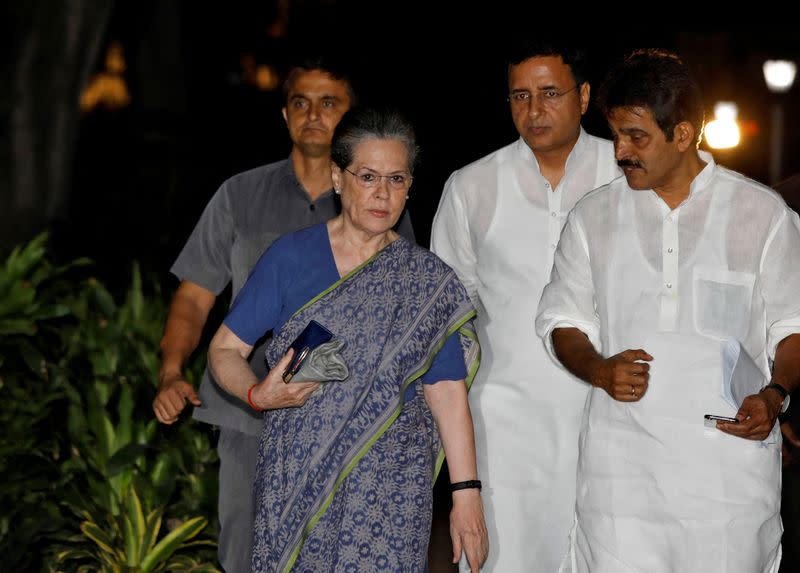Indian opposition's Sonia Gandhi to skip elections, but not politics

NEW DELHI (Reuters) - Sonia Gandhi, one of the most prominent leaders of India's main opposition Congress party, will not contest the upcoming elections, citing her increasing age and depleting health, according to a letter she has written to her constituency.
She will continue to have a significant role in Indian politics though, as she will join parliament's indirectly elected upper house, for which she filed her nomination earlier this week.
Italian-born 77-year-old Sonia is widow to former Prime Minister Rajiv Gandhi, whose mother, Indira and grandfather Jawaharlal Nehru were also prime ministers.
Congress, which was the country's predominant party for decades after independence, is now a shadow of its former self, and was reduced to just 52 seats of the 545 in the lower house of parliament by Prime Minister Narendra Modi's ascendant Bharatiya Janata Party in 2019 elections.
Modi, 73, is widely expected to win a rare third term in elections due by May, though a recent poll suggested that Congress could perform slightly better than 2019.
"Given my health and increasing age, I will not be contesting the upcoming Lok Sabha elections," Gandhi wrote on Wednesday, thanking the people of Rae Bareili, which she has represented for the last 20 years, in the politically sensitive Uttar Pradesh state that sends 80 seats to the lower house of parliament.
It was the only seat in the state her party won in 2019.
Voters elect members to the lower house, but state legislators elect members of the upper house of the Indian Parliament.
Gandhi's son, Rahul, is on his second cross-country march in the last two years, trying to revive the party's fortunes. A coalition led by Congress he helped stitch with more than two dozen opposition parties seems to be ripping at the seams.
(This story has been refiled to say state legislators, not state governments, in paragraph 8)
(Reporting by Krishn Kaushik; Editing by Jacqueline Wong)


